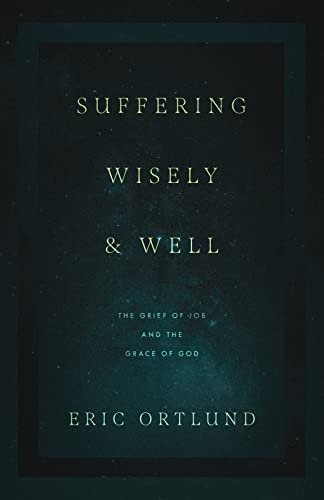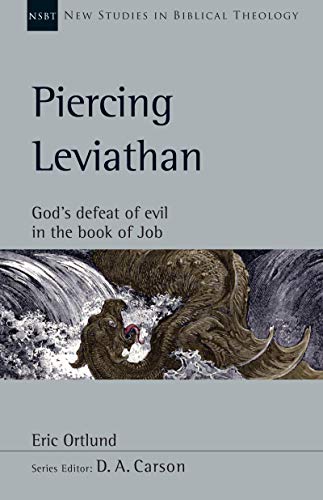Join our list
Subscribe to our mailing list and get interesting stuff and updates to your email inbox.
 Author(s): Eric Ortlund
Author(s): Eric OrtlundPublisher: Crossway
Price: $2.99 (Jun 28-29)
Why Suffering Exists: God’s Purpose for Pain in the Life of Job and throughout Scripture
Why does God allow suffering? The pain of suffering can be overwhelmingly mysterious, but the Bible does provide answers. Throughout Scripture, God allows trials in order to accomplish specific purposes in the lives of his people. When faced with suffering they experience spiritual growth; repentance from sin; or, as in the Old Testament story of Job, the chance to demonstrate devotion to God in the face of inexplicable agony.
In Suffering Wisely and Well, Eric Ortlund explores different types of trials throughout Scripture, revealing the spiritual purpose for each and reassuring readers with God’s promise of restoration. The majority of the book focuses on Job, one of the most well-known yet misunderstood stories of suffering. Ortlund thoughtfully analyzes the text chapter by chapter, including the doubt of Job’s friends, God’s response to Job’s questions, and the meaning behind important imagery including references to Leviathan and Behemoth. Suffering Wisely and Well shows readers how to deepen their relationship with God during painful experiences in their own lives and how to comfort others who are hurting.

Publisher: Crossway
Price: $4.99 (Ends Jan 22)
Why Suffering Exists: God’s Purpose for Pain in the Life of Job and throughout Scripture
Why does God allow suffering? The pain of suffering can be overwhelmingly mysterious, but the Bible does provide answers. Throughout Scripture, God allows trials in order to accomplish specific purposes in the lives of his people. When faced with suffering they experience spiritual growth; repentance from sin; or, as in the Old Testament story of Job, the chance to demonstrate devotion to God in the face of inexplicable agony.
In Suffering Wisely and Well, Eric Ortlund explores different types of trials throughout Scripture, revealing the spiritual purpose for each and reassuring readers with God’s promise of restoration. The majority of the book focuses on Job, one of the most well-known yet misunderstood stories of suffering. Ortlund thoughtfully analyzes the text chapter by chapter, including the doubt of Job’s friends, God’s response to Job’s questions, and the meaning behind important imagery including references to Leviathan and Behemoth. Suffering Wisely and Well shows readers how to deepen their relationship with God during painful experiences in their own lives and how to comfort others who are hurting.

Publisher: IVP Academic
Price: $2.99
One of the most challenging passages in the Old Testament book of Job comes in the Lord’s second speech (40–41). The characters and the reader have waited a long time for the Lord to speak―only to read what is traditionally interpreted as a long description of a hippopotamus and crocodile (Behemoth and Leviathan). The stakes are very high: is God right to run the world in such a way that allows such terrible suffering for one of his most loyal servants? Is Job right to keep trusting God in the midst of much criticism? But it is difficult for modern readers to avoid a sense of frustrating anticlimax as the book ends.
Eric Ortlund argues that Behemoth and Leviathan are better understood as symbols of cosmic chaos and evil―that a supernatural interpretation fits better exegetically within the book of Job and within Job’s ancient Middle Eastern context. It also helps modern readers to appreciate the satisfying climax the narrator intended for the book: in describing Behemoth and Leviathan, God is directly engaging with Job’s complaint about divine justice, implying to Job that he understands the evil at loose in his creation better than Job does, is in control of it, and will one day destroy it.


